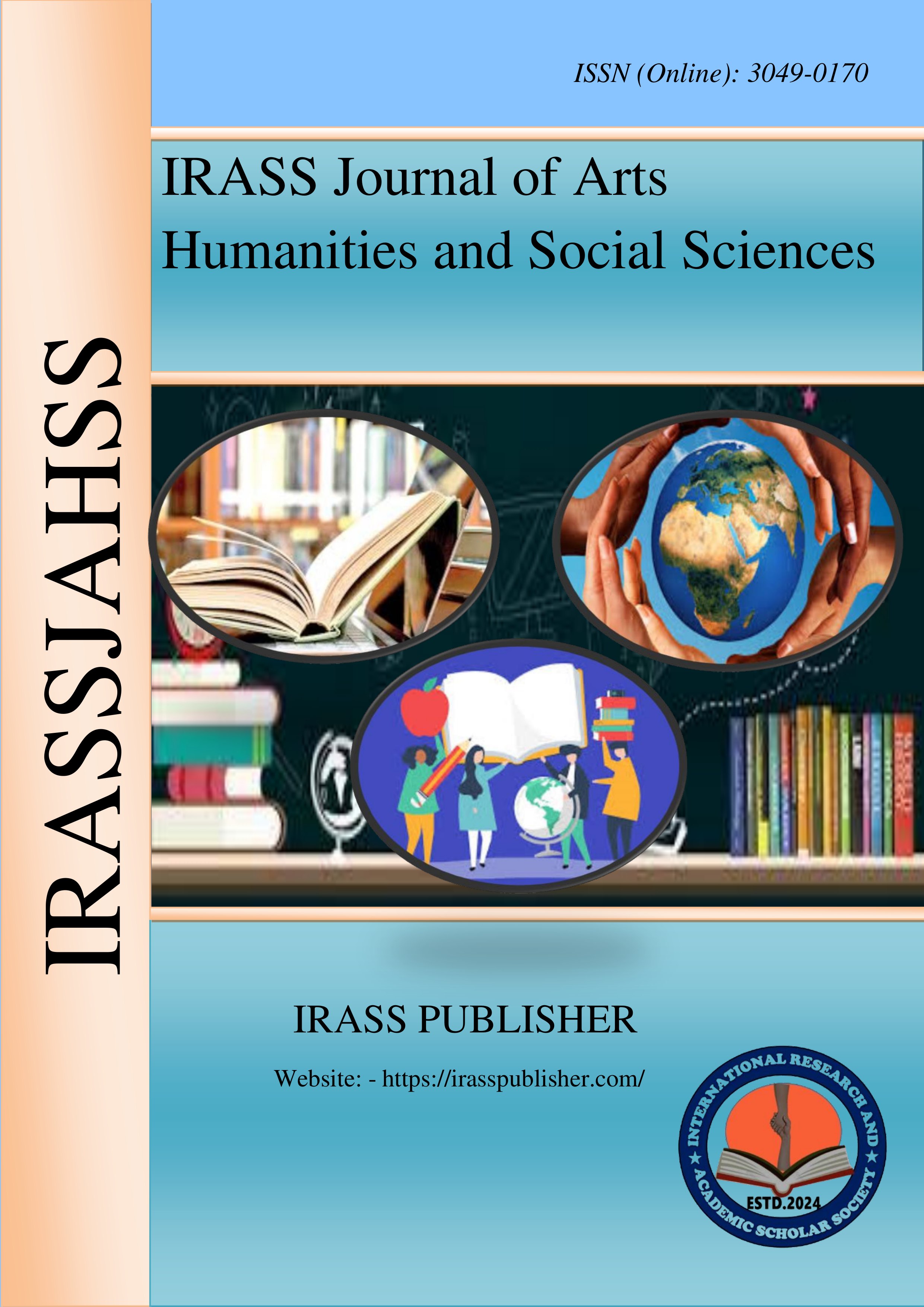HOUSING CONDITIONS – WATER MANAGEMENT AND HEALTH OUTCOMES IN SLUMS: THE CASE STUDY OF MELEN-BLOCK 4 - IN YAOUNDE
Sr No:
Page No:
40-43
Language:
English
Authors:
NGAYI MVEHE ALIMA*
Received:
2025-03-30
Accepted:
2025-04-15
Published Date:
2025-04-18
GoogleScholar:
Click here
Abstract:
The aim of this research is to demonstrate that the negligence of spatial planning in a town can lead to a major public health problem. The exploitation of water as resource, in poor housing conditions generates health issues within the community. When considering the capacity of various environments to support human life, the quantity and the quality of natural resources like water should be taken into account. The ignorance of that fact has caused the management of water resources, to become a major problem in the world today. The study is qualitative and focused on the examination of the role of environment in shaping health problems and how they spray. Primary data has been gathered from Direct Observation and Interviews sustained by a questionnaire containing open-ended questions to 73 Men and 86 Women, between 16 and 70 Years old, in Melen block 4 in Yaounde, in February 2024. Secondary data were provided by a Documentary research. The field of this study is Environmental Anthropology. It demonstrates how an endemic is linked to ecology and how, what first appear to be an efficient cultural adaptation, (housing condition), to a particular environment, can raise health challenges. The Ecological/ Epidemiological Approach has been exploited to examine structural factors and also the underlying cause of health issues; also by examining how water as an aspect of the natural environment interact with culture to cause Diseases and influence their spread within the population. According to this approach, research should focus on gathering information concerning urbanization, as a significant environmental factor that has important effects on health and also about the environmental context and social patterns that cause health challenge, such as food production and distribution, poor housing conditions, the quest for potable water, sexual practices, hygiene, and populations interactions, etc. The results of this study reveal that Melen 4 quarter is a slum, characterized by overcrowding, a very poor spatial planning, poor building, insanitary conditions, absence of basic facilities such as potable water, lack of worn water drainage systems, inadequate access to sanitation, etc. As consequences, populations living in Melen slum are exposed to a range of epidemic problems, as air and water-borne Diseases and other infections that has become endemic. Considering water management in Melen 4 slum, the opportunity to address the relationship between poor housing conditions, water and health outcomes is imposing: a water born disease from Melen-slum can become a national health challenge or a pandemic. A collaboration between the State and the Civil Society for an intervention concerning a well-studied spatial planning, education and sensitization of populations for a proper Spatial planning, sanitary conditions through a hygienic management of latrines, wells, worn water, streams, domestic wastes, etc, is required.
Keywords:
Melen Slum – Housing conditions - Water – Endemic- Health Outcomes.
Journal: IRASS Journal of Arts, Humanities and Social Sciences
ISSN(Online): 3049-0170
Publisher: IRASS Publisher
Frequency:
Monthly
Language:
English

